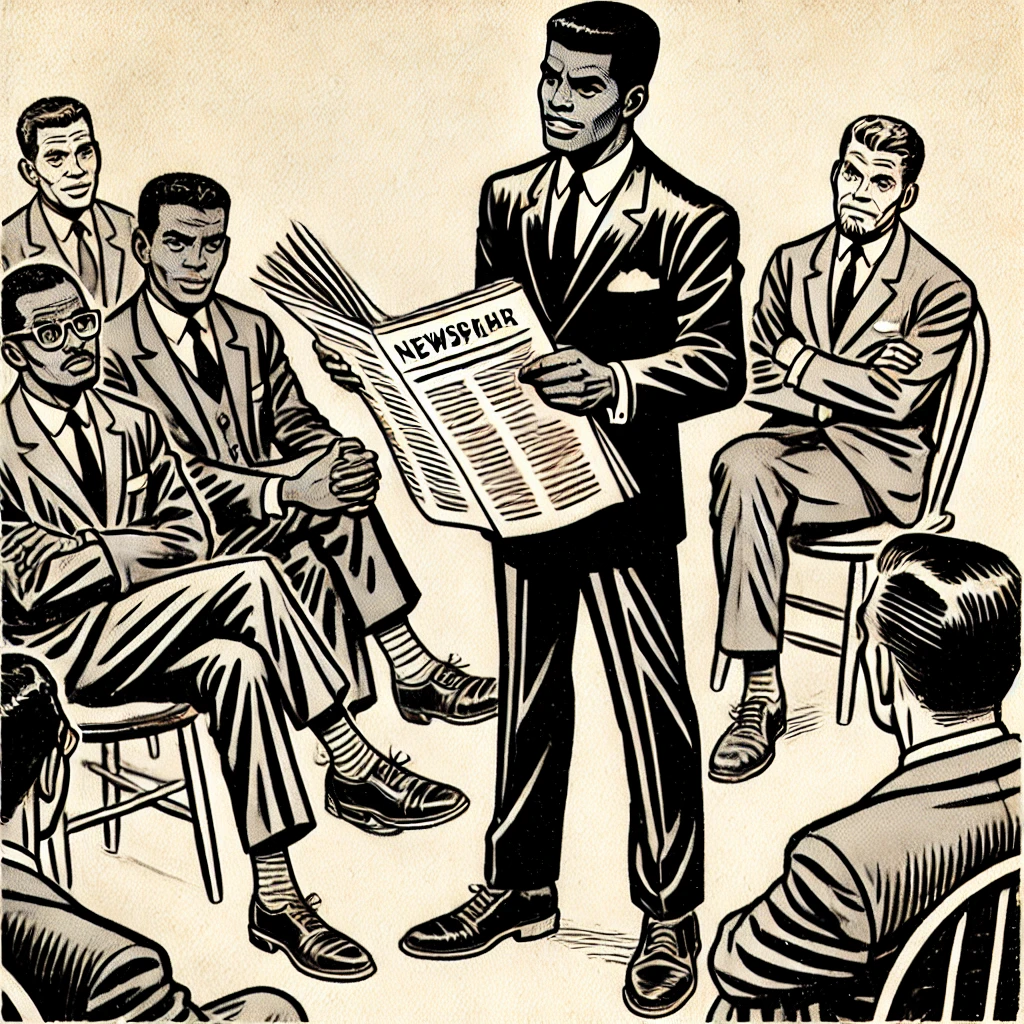Early Life and Education
Dorothy Counts was born in Charlotte, North Carolina, in 1942, during a time when the United States was grappling with deep-seated racial segregation and discrimination. Growing up in the segregated South, Counts experienced firsthand the injustices that African Americans faced. Her family instilled in her the values of integrity, courage, and a commitment to social justice, significantly influencing her perspective on race relations from a young age. The importance of education was emphasized in her household, where intellectual growth was seen as a pathway to empowerment and liberation.
Counts attended the historically black Second Ward High School, where she excelled academically. This institution not only provided her an excellent education but also served as a space where she began questioning the racial inequalities that permeated her everyday life. The socio-political upheaval of the 1960s, notably the Civil Rights Movement, developed into a backdrop against which Counts began to forge her identity as an activist. The idealism of the era, which focused on dismantling segregation and advocating for equality, fueled her ambitions.
The Historic Desegregation of Harding High School
On September 4, 1957, Dorothy Counts embarked on a brave and transformative journey as she became one of the first African American students to attend the previously all-white Harding High School in Charlotte, North Carolina. This groundbreaking step was a significant moment in the fight for desegregation in the southern United States. Her enrollment followed the pivotal 1954 Supreme Court decision in Brown v. Board of Education, which declared that racial segregation in public schools was unconstitutional. Despite legal progress, the social climate remained fraught with tension and resistance.
The first day at Harding High School was not simply about attending classes; it was an intense test of courage. As Dorothy approached the campus, she was met with a sea of hostile faces. Many students chose to turn their backs or openly harass her, demonstrating the deep-seated racism that permeated the atmosphere. This was further compounded by a significant lack of support from many members of the community, who believed that racial segregation should persist. Nonetheless, Dorothy walked into that school with unwavering determination, embodying the principles of equality and justice that the civil rights movement was fighting for.
The reactions from the broader community ran the gamut from sheer hostility to quiet support. For some, Dorothy’s presence at Harding was viewed as an affront to the status quo. Yet, her bravery sparked conversations around the integration of schools and the larger societal implications of civil rights. Witnesses of those events, including faculty members and supportive students, later recounted her resilience in the face of adversity. Dorothy Counts’ pioneering efforts would influence not just her immediate surroundings, but also lay groundwork for further desegregation efforts and ignite a movement that sought to eradicate racial injustice nationwide.
Life After Harding: Continued Activism and Impact
Following her harrowing experience at Harding High School, Dorothy Counts emerged as a steadfast advocate for civil rights, channeling her adversity into a lifelong commitment to social justice. Although her initial foray into integration was met with hostility, it became a catalyst for her ongoing activism. Counts became a member of various civil rights organizations, including the NAACP, where her efforts contributed to a broader movement striving for equality and justice for all African Americans.
Counts’ determination to challenge systemic racism reflected her profound understanding of the struggles faced by marginalized communities. She actively participated in numerous initiatives aimed at dismantling segregation and promoting equal rights, thereby helping to shape the civil rights landscape of her time. Her involvement in local activism paved the way for future generations, inspiring countless individuals to stand against injustice. Through her engagements and public speaking, she raised awareness about the importance of inclusivity and the power of collective action.
The impact of Counts’ work extended beyond her immediate community; she became a role model for young activists seeking to effect meaningful change. By emphasizing education as a tool for empowerment and social mobility, Counts encouraged a generation to pursue academic success alongside efforts to secure civil rights. Her legacy lies not only in her direct activism but also in her ability to ignite passion and resolve in others who followed in her footsteps.
As a pioneer, Dorothy Counts exemplified resilience in the face of adversity. Her enduring influence continues to resonate within the civil rights movement, serving as a testament to the transformative power of activism. In confronting injustice, Counts not only reshaped her own life but also left an indelible mark on the quest for equality, inspiring future leaders to carry forth her mission of social justice.
Legacy and Recognition
The legacy of Dorothy Counts remains a significant touchstone in the ongoing narrative of civil rights in America. Her courageous decision to enroll at Harding High School in Charlotte, North Carolina, as one of the first Black students in 1957 marked a pivotal moment in the American civil rights movement. This act of bravery not only challenged entrenched societal norms but also set an example for future generations advocating for social justice and equality. Over the years, Counts has received various recognitions, including awards from organizations dedicated to advancing civil rights and education. These accolades acknowledge her role in challenging racial discrimination and her contributions to the struggle for equality.
Counts’ story has also been integrated into educational curricula, serving as a powerful narrative that illustrates the challenges and triumphs of the civil rights movement. Educational institutions use her experiences to foster discussions about racial tensions, the importance of resilience, and the necessity of standing up for one’s beliefs. By sharing her story, teachers aim to inspire students to reflect on the implications of racism and inequality, empowering them to engage in advocacy for change. Her experiences resonate particularly strongly today, as issues of systemic racism and social justice continue to dominate public discourse across America.
Moreover, Dorothy Counts’ legacy is not solely confined to historical narratives; it also serves as a reminder of the work that remains. Activists of all backgrounds can draw from her resolve and tenacity as they confront the ongoing challenges posed by discrimination and inequality. As society progresses, the importance of remembering pioneers like Counts remains evident, ensuring that their contributions are honored and that their stories continue to inspire future generations in the pursuit of social justice.








